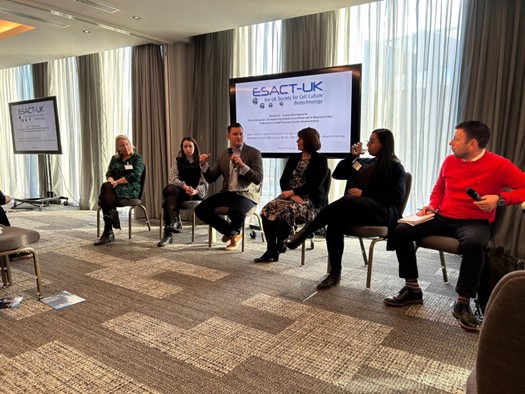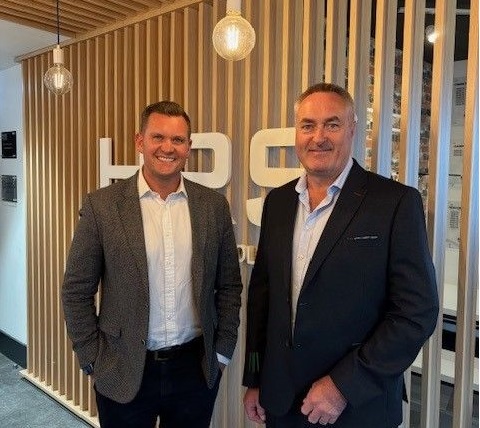

Founded in 2012, Hyper Recruitment Solutions (HRS) is a multi-award-winning recruitment agency specializing in STEM roles within the life sciences sector, offering a global service with a personal touch.
Co-founded by Ricky Martin and Lord Alan Sugar, our team combines over 200 years of recruitment experience, with two-thirds of our professionals having deep STEM backgrounds.
Our commitment extends beyond recruitment; we share your passion for advancing life-saving medicines and transformative technologies. This dedication enables us to provide solutions that address the unique needs of life sciences organizations and drive meaningful innovation worldwide.
Discover how our award-winning approach can enhance your recruitment strategy or advance your career, and join us in making a significant impact on global health and technology.
- Lives Changed
- Trees Planted
- Tonnes of CO2 offset
- Client Partners
- Countries Supported


Often the starting point for innovation in the life sciences, where fundamental research and development of new therapies, including advanced therapies like gene and cell therapies, take place.





Latest Jobs
Find Your Perfect Fit
Don't miss out on your next life sciences opportunity. Search now.
Our Services
We deliver comprehensive recruitment and consulting solutions.
Contingent hiring for permanent and contract roles
Flexible and responsive recruitment solutions to meet immediate hiring needs. This includes:
- Access to a diverse talent pool across the Life Sciences
- Quick turnaround for permanent and contract roles
- No upfront commitment – payment upon successful placement
Exclusive hiring for permanent and contract roles
A dedicated approach to finding the perfect fit for your organization, ensuring priority access to top talent. This includes:
- Exclusive partnership for targeted recruitment
- Enhanced candidate screening and selection processes
- Dedicated account management for a tailored experience
Retained search assignments for senior appointments
Specialized recruitment for high-impact leadership and executive roles. This includes:
- Market mapping and headhunting for senior appointments
- Confidential search processes for critical hires
- Comprehensive candidate assessments and benchmarking
Volume hiring campaigns and strategic consultancy
Solutions for large-scale recruitment drives or advisory needs. This includes:
- End-to-end management of high-volume campaigns
- Recruitment for new site launches or growth projects
- Workforce planning and strategic consultancy for talent initiatives
RPO (Recruitment Process Outsourcing) / MSP (Managed Service Provider) services.
Embedded talent solutions to streamline and optimize hiring processes. This includes:
- Onsite or remote RPO/MSP services tailored to client needs
- Total talent acquisition and workforce management
- Consistent and scalable support for ongoing recruitment needs













